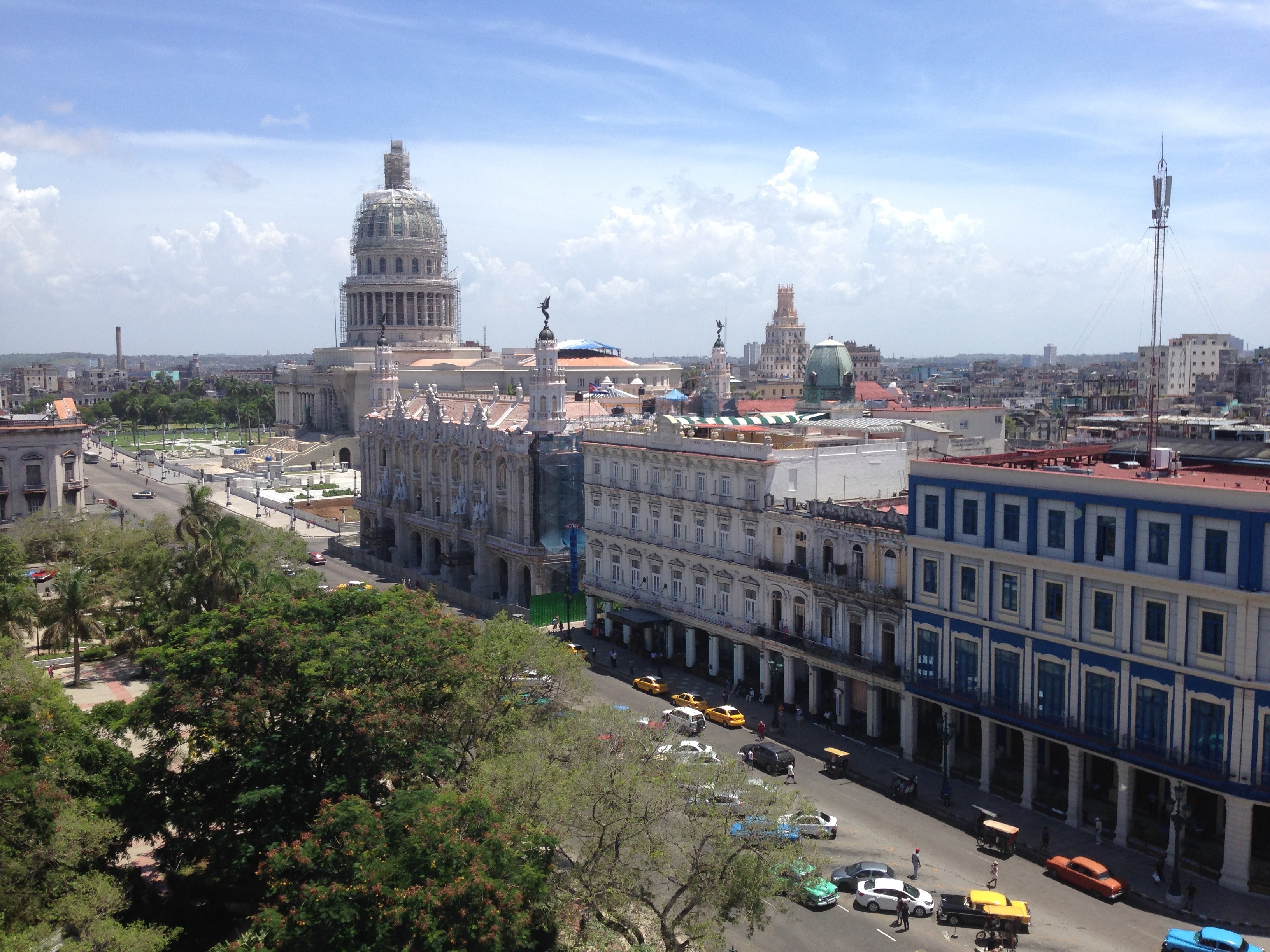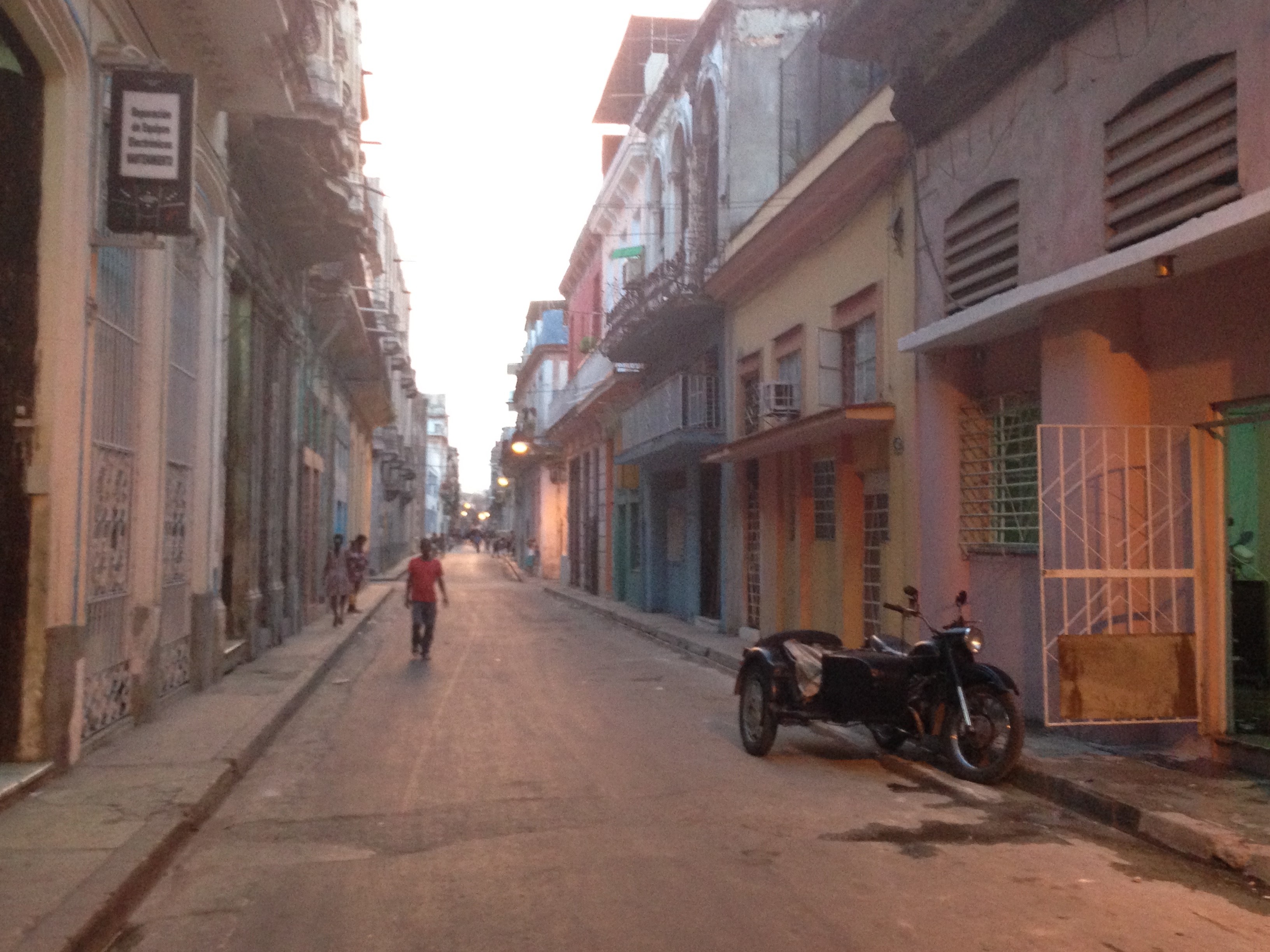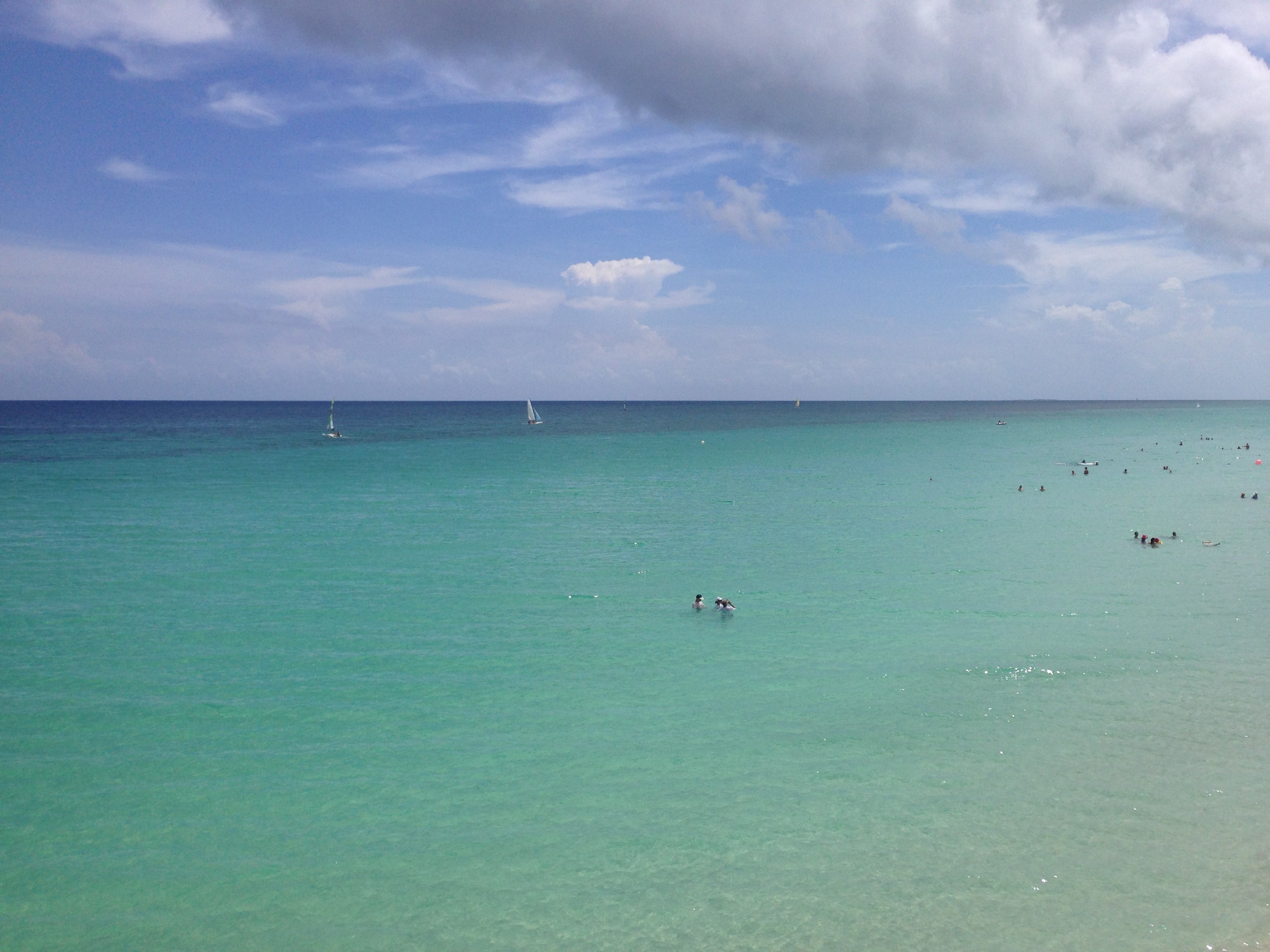I’ve written that I’m waiting to travel to Cuba. The US government isn’t enforcing (among others) the Helms-Burton Act or Treasury Department regulations. But I play things pretty conservative, while Cuban travel at this point isn’t likely to arouse government interest, if the government is interested in you already then violations of law in the process of Cuban travel is something that could be used against you. (I also take an especially careful approach to my taxes as well.) Most people won’t take this approach.
Since I don’t have experiences of Cuba travel to offer, I’m especially interested in stories of visiting there. Fortunately my friend Adelle Archer has been more than once, she’s just returned and offered to share a few tips from the trips she’s taken.
I very much look forward to Cuban modernizing.. for the sake of the Cuban people. Remember that however quaint walking back into the 1950s may be as a tourist, the people of Cuba have been forced to live without the benefit of many of the advances of technology that we too easily take for granted.
Nonetheless, Cuba travel serves as a reminder of how different life is over such a short distance. Miami and Havana are 235 miles apart, about the distance between Dallas and Austin, or Washington DC and New York, but the lives of people differ markedly. Go and think about the differences in institutions in place between the two countries. Cuba has had the benefit of subsidies from the Soviet Union and from Venezuela during the existence of the current regime. Despite US trade sanctions it has had trading relations with much of the world. And yet living standards have remained below not just the US but Caribbean counterparts as well.
I do think it’s worth going, seeing that first hand, and thinking hard about what life there has meant… as the country is just starting to open up, hopefully making it possible for its people to benefit from development.
Get a Move On to Cuba…Before It’s Too Late
“Where you from?” a little man with sparkling eyes and a shy smile asks me with a strong Cuban accent. “Texas…” I respond hesitantly, waiting to see how he reacts. “Finally!” He throws his hands up in celebration – the last reaction I expected.
I was surprised – five years ago when I first came to Cuba, this was far from the response I received. I recall a Varadero resort employee actually turning his back on me mid-conversation when I told him I was American! Needless to say, I flew the Canadian flag for the rest of that trip.
Between the changing of the Castro guard, an influx of tourism, increased capitalist practices, and thawing relations between the US and Cuba, many things are changing in Cuba (including their opinions of Americans). In all likelihood, these changes may be for the better, but if you’re keen on seeing the nostalgic 1960’s Cuba preserved in time, you better go sooner than later!
Getting Into Cuba as an American
As part of the reconciliation talks between President Obama and Raul Castro in December 2014, Americans are now allowed to travel to Cuba for twelve different Treasury ordained reasons. Sadly, tourism isn’t one of them.
The presidential agreement is a great first step towards making-up, but it’s still not straightforward getting into Cuba if you don’t pass Treasury criteria. I had to hire a Mexican travel agency (ADA Travel) to book our airfare to Havana (Cubana Air) and connect through Cancun, Mexico to get to Havana.
The rumors are true that there are direct flights from Miami and New York, but they are chartered so they’re expensive, and only for travelers meeting legal reasons for travel.
If you’ve got dual citizenship and want to fly a little more under the radar – go for it. I have a New Zealand passport and that’s what I traveled on. Yet if you only have an American passport, then let the Cuban immigration officers know you don’t want it stamped.
To visit Cuba you need medical insurance and a tourist visa. You must arrange the medical insurance in advance (we did ours through ADA Travel), but you don’t need to worry about the tourist visa. There’s actually a guy that stands next to your check-in line in Cancun, and sells visa for $25USD cash. It feels sketchy, but it’s actually legitimate. (FYI there’s also a $26USD airport tax in Cancun, so be prepared with cash).
Once in Cuba, getting from the airport to downtown Havana is simple and should cost no more than 20-25 Cuban convertible pesos (CUC). It’s a pretty unforgettable ride because you’ll be in awe at the eccentric world you just stepped into; 1940s Chevys, Buicks, and Fords whiz by and peeling billboards profess, “Viva la Revolución!” “Viva la Libertad!” “Socialismo o Muerte!”

Sign in support of the 1960s revolution
Living Luxe or Cuban Style?
Last time in Havana, I stayed in a casa particular, or a Cuban family’s home that’s licensed for tourists to stay in. This trip, I stayed in the Parque Central, the only 5 star hotel in Havana.
If you’re looking for Western amenities, then you’ll get them at the Parque Central, but don’t be expecting the Ritz Carlton – it’s more like an upscale Holiday Inn. A few big pluses that are hard to find elsewhere: strong air conditioning, fast internet, and the ability to make domestic phone calls.
My favorite part of the Parque Central is the pool; it sits atop the nine-story building and offers spectacular views of all of downtown Havana and the Capitolio. In fact, the best music I heard in Cuba was the hotel band that plays for the pool crowd.

The Capitolio in downtown Havana

Downtown Havana
Overall, the Parque Central is in a great location and walking distance from all the main attractions in Havana, but I still missed the intimacy of a casa particular. You miss out on conversing with Cuban families, watching neighborhood passerby, and getting a feel for Cuban culture by being immersed in it. Plus, Cuban matriarchs make one hell of a breakfast.

Typical breakfast at a casa particular
Cuban Cuisine
Cuba boasts a lot of great attributes, but good food isn’t one of them. Overall, a reliable rule of thumb is to opt for private restaurants (paladares) over public ones, but finding them takes some digging. They won’t be the highest-ranked on Trip Advisor yet, because the government only recently released these private licenses.
One I highly recommend is Habana Mia 7 in Havana and Tenedor in Trinidad. Be sure to talk to the owners of these places and ask for their stories – they are an entrepreneurial tale of trial and tribulation like you’ve never heard.
On a related gastronomic (gastrointestinal) note: I don’t know what the official word is, but I wouldn’t recommend drinking the water. We had some pretty upset tummies by doing so.
Hitting all the High Points
An obvious Cuban-must is viewing and perhaps learning to salsa dance. In Havana, you’ll want to go to Casa de la Musica in Mirador (rather than the one in Central Havana) to see more locals in action. That said, Trinidad is the best Cuban city for salsa. Casa de la Trova takes the cake for Trinidadian salsa clubs, and you can take an hour and a half salsa lesson from a professional choreographer for $10USD at the Casa de la Cultura.
Another Cuban gem is the pristine, white-sand beaches. Varadero is most famous with its all-inclusive resorts (it’s becoming more touristy by the day), but there are some other beautiful small beaches that are much more tranquila like those off Trinidad (La Boca y Playa Ancón), and the Isla de la Juventud. If you’re in Havana looking for a quick-day jaunt, check out Villa Tarará.

Varadero beach
Havana city is bustling yet safe, so it’s fun to wander the Havana streets and neighborhoods, to get a real feel for day-to-day life. In the evening, enjoy a sunset and a mojito at the famous Hotel Nacional (where many presidents stayed when visiting Cuba) while looking over the cliffs onto the Havana Harbour. Another great sunrise/sunset activity is walking along the Malecón, a concrete boardwalk along the water with cool art installments and great views of the Havana skyline.

Fishing on the Malecón in Havana
If you’re looking to visit other cities in Cuba, I recommend the colorful and colonial town of Trinidad, and if you’re open to a small-town experience with little tourism, Playa Girón (in the Bay of Pigs) is a nice escape.
Don’t Get Burned
Here are a few important tips that will ensure you have a stress-free vacation:
– Bring enough US dollars to change. I learned the hard way that Americans can’t take out more cash from ATMs (or Western Union funds from the states) and no one takes credit cards. Bring more than you think you need.
– Don’t buy cigars on the street – they are knock offs. You need to go to a proper cigar store. Ask a concierge at a hotel to refer you to one.
– Plan your trip in advance. Remember it’s a communist country, so many things are in short supply. I learned the hard way that you have to reserve rental cars 4 months in advance.
– Bring sunscreen and aloe vera. The sun is hot, you will get burned, and small beach towns don’t sell either item.
– Opt for a taxi colectivo for long city-to-city trips. It’s the same price to ride in a shared taxi as it is to take the bus, and they deliver you door-to-door. Inquire for colectivos at the bus station.
The Times are a Changin’
Since my last visit five years ago, there have been some remarkable changes. The first thing I noticed as a significantly pared-back police presence. When I returned from Cuba the first time I swear there was a 1:4 police:resident ratio, and now you hardly see them. This is a good thing, because they had a reputation for asking tourists for their papers.
The second most remarkable difference is the beginnings of privatization. As I mentioned above, there are now some private restaurants around, as well as hotels and markets. I expect this to significantly improve Cuban living standards, as entrepreneurship becomes legalized over time.
Finally, the third most obvious difference is the mushrooming of tourism. Havana Vieja has fallen prey to tourist gimmicks and Varadero is quickly taking resemblance to Cancún. That said, the rest of Cuba is still yours for the exploring, but take haste, before the Tourist Revolución reshapes it into the Hawaii alternative.
About Adelle
With a Delta Airlines pilot for a father, Adelle grew up jet-setting. She’s traveled to over 30 countries and lived years abroad in Buenos Aires, Sevilla, and Montréal.
Adelle completed her MBA at the Acton School of Business – one of the top programs in the country for Entrepreneurship. She then caught the Austin tech-bug, and today is a Product Marketing Manager at a fast-growing ecommerce technology company.
Adelle is passionate about empowering others; she’s a mentor to young MBAs and also provides hospital accompaniments to survivors of sexual abuse. Her mission in life is to facilitate authentic human connection, which she does through pay-it-forward projects like Edge of the Bed (collaboration with TED speaker Drew Dudley) and a new business she’s launching that delivers messages people need to share before they die. You can follow Adelle’s ideas and adventures on her blog at adellearcher.com.


It seems that the most benefit to a country’s people comes about when they are fully empowered…which means rule of law, private property rights, freedom of speech, and other factors. Don’t take my word for it. Google “2015 Index of Economic Freedom” then relate that score to quality of life.
For 2015 Cuba scores between Venezuela and North Korea. The recent U.S. actions are unlikely to make more than marginal difference in the life of a typical Cuban – there are certainly going to be more opportunities for corruption, however.
I just came back from Cuba last month. A truly fascinating place…but I’m glad I’m back out!
What US-based travellers might not be aware of is that any foreign currency exchanges involving USD in Cuba will be hit with an automatic 10% ‘tax’. So it will always be better to swap Euros or other currencies you have spare before you go for the USD.
I really enjoyed my trip to Cuba. Here are some reviews from my http://www.bugadvisor.com blog:
Parque Central Hotel in Havana http://wp.me/p2BxLS-o7
Royalton Hicacos Varadero Resort & Spa http://wp.me/p2BxLS-oj
The VIP lounge in Havana airport http://wp.me/p2BxLS-oP
This will be my first negative comment here.
Stylistically, your first few paragraphs are just a mish-mash of run-on sentences, typos and wrong punctuation. At least do this for me: “But I play things pretty conservativeLY.” Yeah, that’s an adverb and a period.
Substantively, this verges on the alarming. It’s really not ok at all to visit Cuba if you don’t fit into one of the 12 categories. Having another passport is also 100% irrelevant since the regulations in question are issued by the Treasury Department, which doesn’t care about passports. (That’s for the State Department to worry about.) The Treasury Department cares about money, and they won’t let you spend any of it in Cuba without a license. So let’s get personal for a moment. Do you have a law license? A medical license? Do you have Global Entry? Now think about it again. Do you really want to go to Cuba illegally? Do you?
Yeah, I thought not. Going to Cuba illegally, whether through Mexico or otherwise, isn’t just not “conservative.” It’s illegal . . . with all that that entails.
Hey Gary – looks like you didn’t approve my post. I realise that I put links to my own blog, but you did write this:
Since I don’t have experiences of Cuba travel to offer, I’m especially interested in stories of visiting there.
So I assumed that would be okay.
@Paul: I think comments with links go into an approval queue and I imagine your comment will show up whenever Gary gets a chance to go through them.
@Tom
Except that “journalistic activity”, including freelance journalism, is an allowed reason, with no required identification or credentialing process. So if you visit Cuba with the intent to write a blog post about your experiences afterwards, you can be a qualified traveler- provided you follow the following rule: “The traveler’s schedule of activities must not include free time or recreation in excess of that consistent with a full-time schedule.”
The idea that the character of Cuban tourism is going to change suddenly is preposterous.
Cuba has long been a mainstream Caribbean destination for tourists from Canada and Europe.
You’re not a trailblazer going off the beaten track, any more than you are when you visit Vietnam.
As welcome as these tips are, the usual travel publishers all sell guide books to Cuba.
Have been to Cuba twice. Truly amazing trip. I agree with some of the feedback, disagree with other points. I thought the food was great, for instance. And, yes, you must bring proof of health insurance and show it to the passport/immigration officer at entry. But, just a phenomenal time. I wish I was there right now.
It amazes me that people have such short-sighted views about visiting places such as Cuba. Of course you can visit, and hundreds of thousands of Americans do in an off-the-books fashion every year.
Beyond the obtuse nature of our laws, and the fact that our government has even proclaimed that they will not enforce them, there is really no reason not visit if you are interested, sanctioned or otherwise.
@Mike: While I agree with you (and find Toms “alarming” post to be alarmist) I think there’s a genuine issue with Global Entry. You do have to list all countries you’ve visited in the last five years and I imagine that lying on the form is probably a more significant issue than simply having been to Cuba. With Cuba on the form I doubt very much you’d be granted Global Entry. I was talking to one fellow last weekend who said just that happened to him (he has a year left before he hits the five year mark and will be able to reapply). Same with me — I won’t be able to apply for Global Entry for another three years or so.
I have been to Cuba at least ten times since 2002; way before Cuba was “cool”. I have a few observations. I never received a cool or nasty reception like Adelle says she was subject to five years ago, and I started going there almost 15 years ago, not five. She might have just run into some grouch, but on the whole, Cubans have always loved Americans–far above those of any other country, bar none. We tip well and almost all Cubans have American relatives. Cubans are more like the US than the Caribbean. However, in 2002 we have a “government minder” that followed us around the country (we were with a University group highly suspect for some reason), and police presences was high, but police on every corners were virtually gone by 2010. US Tourism isn’t what created the latest changes in Cuba What created the dramatic changes was Raul Castro in 2008 allowing private citizens to have phones and buy/trade cars and residences. When people can communicate directly, everything changes. When people own property, everything changes. The BIG changes in Cuba came in 2008-20010, not last December when someUS restrictions were lifted. The cars and dilapidated buildings look the same, but the Cuban mindset changed dramatically long before Obama made any announcements.
I do have to agree with “alarmist Tom” relative to Global Entry. When I got my global entry two years ago, I wrote that I had been to Cuba a couple of times in the prior five years, and had to provide every license for my many trips. Had I not had those licenses, I know I would not have received Global entry. However, if that (or other potential government clearance) is not important to you, I would go to Cuba in a heartbeat–via the US, Canada or Mexico. The US has way too much other stuff to worry about right now, I don’t think lying on the beach in Trinidad is on the list of things to flag.
I also agree with Mark about the food being great. In 2002 it was beyond horrid–government restaurants serving five day old smelly fish and canned vegetables. There was one nice paladare at that time called La Guarida which is still one of the best restaurants in the city–ten time bigger and hugely successful. By 2009, the number of restaurants was huge, and today you can’t even count the number of fabulous restaurants. It is turning into a “foodie” city. Le Chansonier, Cafe Laurent, El Cocinero and LaGuarida are but four of hundreds of great restaurants in Havana alone. These places are called “paladares”, but they are full fledged restaurants that will stand up against many similar venues in the US. Their chefs are from Europe, their decor is stunning, the music hot, and the views simply gorgeous. Here is my favorite guide to restaurants: http://www.lahabana.com/guide/havana-guide-home/restaurants/
With Airbnb now having casa particulars listed, it is easy to find a nice place to stay for short money. The Park Central hotel and the Saratoga are called 5 star–but that is not the US 5 star standard. They are both lovely hotels however, and won’t disappoint. They also have decent wi-fi which is a good reason to stay there if that is important to you. The Hotel National is a Havana landmark with a nice lobby and lawn. Do not stay there. The rooms are awful.
Many cab drivers and butchers in Havana have a PhD in engineering or economics or an MD. It is amazing talking with them. The conversations are so multi layered and complex. Havana is a city unlike any any other you will ever encounter. Some nightclub venues like “Fabrica de Arte Cubano” have the sophistication of a club in Berlin, while some neighborhoods only have electricity a few hours a day and must use cisterns for water. Across the board, the people are smart, hopeful and cheerful with a wicked sense of humor. There is a Discovery Channel documentary series called “Cuban Chrome” (you can find it on “on demand”). It’s about how Cubans keep their 1950’s cars on the roads, but it is far more than that. It is about complexity and family and resolve. I highly recommend everyone who is interested in Cuba watch “Cuban Chrome” At the end you will understand why Cuba is going to do just fine.
Great post! i think your readers will benefit a lot from this information, I really like how you went into details about a lot of things, my only question is about how people greet you, do cubans have a positive aptitude toward foreigners or are they against people coming into their country, I being told that there are very reactive cubans who think people only go there to exploit woman and things like that, what are your thoughts on that, thank you!
Do you know how many people have been arrested in 2015 and/or 2016 for traveling illegally to Cuba from the USA?
I was wondering if folks who went to Cuba could please share their experiences on their RETURN to the US with Immigration. Did US give you a hard time when re-entering? Did they scrutinize your paperwork?